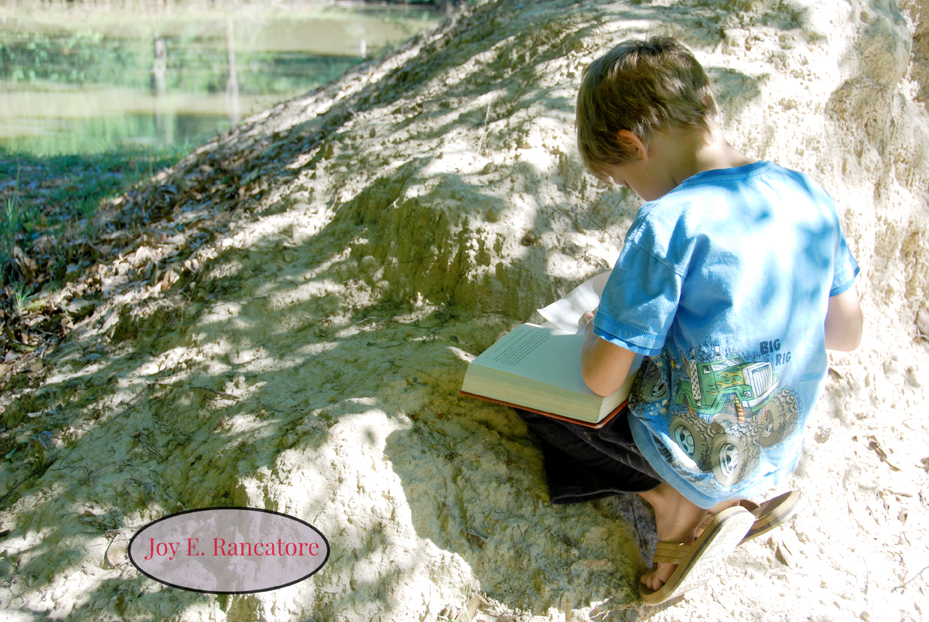I didn’t grow up a reader.
Accelerated Reader was the bane of my existence in elementary school. Sure, as a kid I read the occasional book that I really enjoyed. Books like The Outsiders and Of Mice and Men and a few other classics. But I would have never considered myself a reader… until now. It was not until I became an adult that I learned how to become a reader.
That is my topic today, but first a quick introduction. My name is Tony, hence forth known to Logos and Mythos subscribers as Joy’s husband. Joy asked me to write a blog about my journey as a “late-blooming bibliophile,” so here goes.
Maybe your child is not a reader. You can check out Part 1 in this series on reading for more tips there. Maybe you are not a reader and want to become a reader. Perhaps your spouse is not a reader and you want them to discover that value and beauty of reading. The following is what worked for me in order of how it happened.
So, what changed?
I felt left out! Okay, maybe I felt kinda stupid. There I was a college freshman, and everyone was significantly more well-read than I was. So maybe that last statement was a bit hyperbolic; but many of the people I met in college were quite well read and I wanted a bit of that for myself.
Then the realization set in—I wasn’t a very good reader; furthermore, I didn’t really like to read. This was my first step to becoming a life-long reader: A change of heart! For the first time I wanted to become a reader.
Fortunately for me I was just entering college seeking a degree in history with plans on pursuing a master’s degree of some sort in seminary; so I had lots of professors and research papers to keep me reading and reading often. But what I wanted—and still want—is the joy of reading. How do we capture that if it hasn’t been part of our life since childhood? Well, in short, we read and then read some more!
Read great stories!
Everyone loves a great story, and nothing puts you in your favorite story like reading it. Reading great stories is the best way to develop a love for reading for a couple of reasons:
-
- Reading narrative is easy, and well-written tales are captivating. Whether a Tom Clancy novel is keeping you in suspense page after page or Elie Wiesel is shattering your soul, great stories not only draw us in, they have a way of becoming part of us.
- Reading these great stories also “primes the pump” of our brains, training us to be able to focus on the same white page with black letters for several minutes without any other images bombarding us. For many of us this will be difficult at first because the world of screens sends us an onslaught of new images to process at the rate of one per second!
Read about what you like!
That was the advice I got from a friend on how to become a reader. Once you have begun to train your mind on narrative you need to branch out into the world of non-fiction. I have a variety of literary interests ranging from theology to my small obsession with the life and presidency of Abraham Lincoln—himself quite well-read.
Reading subject matter that already interests us makes it easier to enjoy what we are reading. It also helps train and strengthen our brains to read things that are either more difficult to read or not as interesting to us.
Realize the divine appointment of reading!
This thought was an epiphany to me. If God—who is completely sovereign—chose to communicate to us sinful humans with the written word, it must be important. I have occasionally thought about the reasons God chose to communicate by the written word; and, while there are many reasons, I believe one big one is that reading, as I stated above, has a way of getting inside of us and affecting our hearts.
Certainly, there is much more to faith than reading; but, as the book of Romans reminds us, “…faith comes by hearing and hearing by the word of Christ.” We can’t hear his word unless we or someone else reads it.
So, this is the goal of my reading: to have a joy of reading so that, ultimately, I will be a better reader of the word of Christ.
If you weren’t a reader and now are, what are some things that worked for you? We’d love to hear about your experience!



Kathleen, thank you for those kind words!
You’re welcome. 🙂
This is a great post, Joy’s husband 🙂 I’m sure your words will touch on someone who is the reluctant reader or a parent/teacher of one.Thank you for sharing your story.